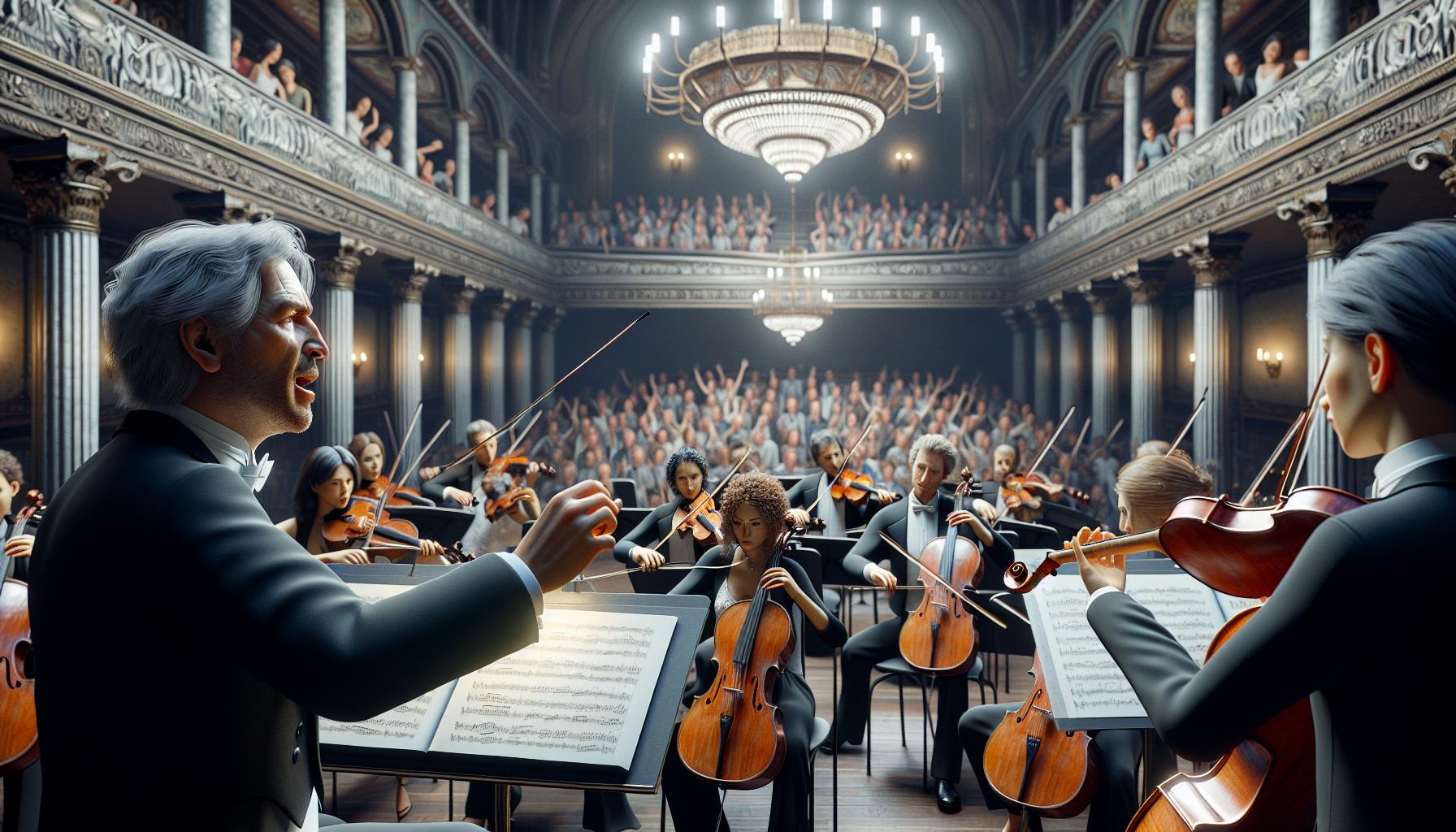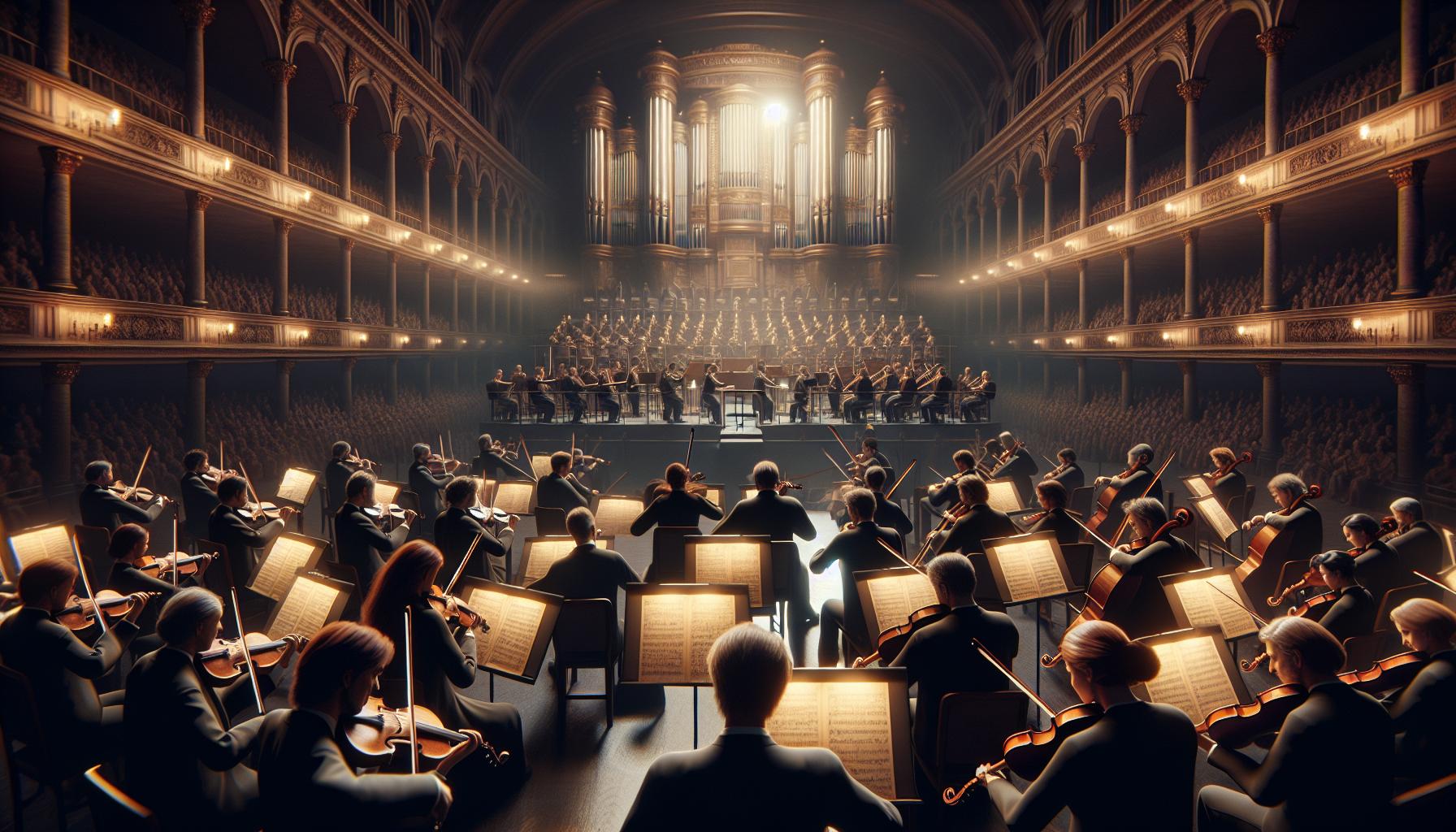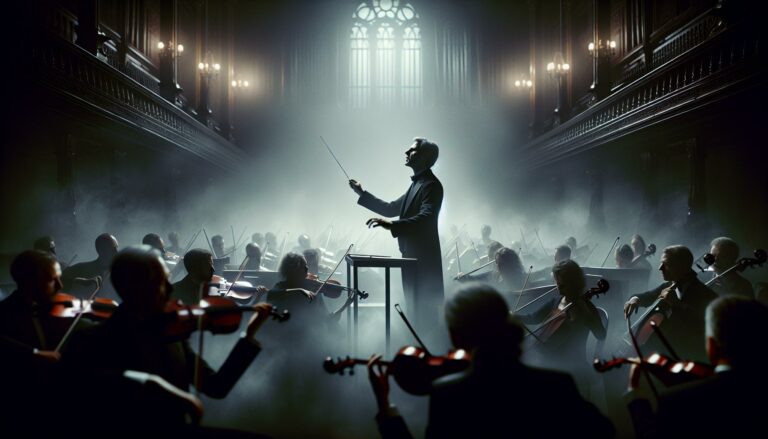25 Best Movies About Classical Music: From Mozart to Modern Masterpieces

Classical music has captivated audiences for centuries and inspired countless filmmakers to bring its magic to the silver screen. From biographical dramas about legendary composers to fictional tales of musical prodigies these movies blend the power of storytelling with timeless compositions.
Hollywood’s fascination with classical music has produced masterpieces that showcase not only the beauty of orchestral performances but also the intense dedication and passion behind the notes. Whether it’s the fierce competition between rival musicians or the struggle of young talents fighting against all odds audiences can’t help but be moved by these compelling narratives that celebrate the transformative power of music.
Must-Watch Movies About Classical Music
Amadeus (1984)
F. Murray Abraham portrays Antonio Salieri’s rivalry with Wolfgang Amadeus Mozart in this Academy Award-winning film. The movie captures Mozart’s genius through elaborate musical sequences featuring his most celebrated compositions including Symphony No. 25 in G minor K. 183 and The Magic Flute.
The Pianist (2002)
Adrien Brody stars as Władysław Szpilman, a Polish-Jewish musician who survives the Holocaust through his musical talent. The film showcases Chopin’s compositions, particularly Ballade No. 1 in G minor Op. 23 and Nocturne in C-sharp minor.
Shine (1996)
Geoffrey Rush portrays pianist David Helfgott’s journey from child prodigy to mental breakdown. The film centers on Rachmaninoff’s Piano Concerto No. 3, demonstrating the technical demands placed on classical performers.
Immortal Beloved (1994)
Gary Oldman embodies Ludwig van Beethoven in this biographical drama exploring the composer’s mysterious “immortal beloved.” The film features iconic works including Symphony No. 9 and Moonlight Sonata.
Hilary and Jackie (1998)
Emily Watson plays cellist Jacqueline du Pré in this biographical drama about the renowned musician’s rise to fame. The movie highlights Elgar’s Cello Concerto in E minor, du Pré’s signature piece.
Copying Beethoven (2006)
Ed Harris portrays Beethoven during his final years, focusing on the creation of his Ninth Symphony. The film recreates the historic premiere of the symphony with detailed attention to musical accuracy.
| Film | Awards | Box Office (USD) | Year |
|---|---|---|---|
| Amadeus | 8 Academy Awards | $52 million | 1984 |
| The Pianist | 3 Academy Awards | $120 million | 2002 |
| Shine | 1 Academy Award | $35 million | 1996 |
| Immortal Beloved | 0 Academy Awards | $9 million | 1994 |
| Hilary and Jackie | 2 Academy Award Nominations | $4 million | 1998 |
| Copying Beethoven | 0 Academy Awards | $6 million | 2006 |
The Role of Classical Music in Film Storytelling

Classical music serves as a powerful narrative tool in cinema, enhancing storytelling through its complex emotional range and historical significance. Its incorporation transforms ordinary scenes into memorable cinematic moments that resonate with audiences on a deeper level.
Creating Character Through Music
Classical compositions reveal essential character traits through specific musical choices. Bach’s intricate fugues portray intellectual precision in characters like Hannibal Lecter in “The Silence of the Lambs” while Chopin’s romantic pieces express emotional depth in characters from “The Pianist.” Composers’ works become character signatures: Mozart’s playful compositions mirror youthful energy, Beethoven’s bold symphonies represent determination and Wagner’s dramatic pieces suggest grandeur or villainy.
- Crescendos build suspense in dramatic revelations
- Minor keys emphasize melancholy in reflective scenes
- Staccato rhythms intensify action sequences
- String arrangements underscore romantic encounters
- Orchestral swells punctuate emotional climaxes
| Musical Element | Emotional Effect | Notable Film Example |
|---|---|---|
| Tempo | Controls pacing | “2001: A Space Odyssey” |
| Dynamics | Heightens intensity | “Fantasia” |
| Harmony | Establishes mood | “The King’s Speech” |
| Orchestration | Creates atmosphere | “Black Swan” |
Movies Based on Famous Composers’ Lives
Biographical films about classical composers offer intimate glimpses into the lives of musical geniuses who shaped the course of music history. These cinematic portrayals combine historical accuracy with dramatic storytelling to explore the personal struggles behind timeless masterpieces.
Mozart’s Story in Amadeus
“Amadeus” (1984) portrays Wolfgang Amadeus Mozart’s life through the eyes of his rival Antonio Salieri. The film captured 8 Academy Awards including Best Picture for its depiction of Mozart’s extraordinary talent combined with his rebellious personality. Director Milos Forman showcases Mozart’s most celebrated works including:
- The Marriage of Figaro
- Symphony No. 25 in G minor
- Requiem Mass in D minor
Mozart’s character displays both musical brilliance and personal flaws through Tom Hulce’s energetic performance. The film’s historically accurate costumes period settings transport viewers to 18th-century Vienna’s competitive classical music scene.
Beethoven’s Journey in Immortal Beloved
“Immortal Beloved” (1994) explores Ludwig van Beethoven’s life through an investigation into the identity of his mysterious love interest. Gary Oldman’s portrayal captures Beethoven’s intense personality his struggles with progressive hearing loss. The film features powerful performances of:
- Symphony No. 3 “Eroica”
- Symphony No. 5
- Symphony No. 9 “Choral”
The narrative weaves together Beethoven’s most significant compositions with pivotal moments in his personal life. The film’s dramatic recreations of concert performances highlight the revolutionary impact of Beethoven’s work on classical music while revealing the emotional turmoil behind his creative process.
| Composer Film | Release Year | Academy Awards |
|---|---|---|
| Amadeus | 1984 | 8 |
| Immortal Beloved | 1994 | 0 |
Classical Performance in Contemporary Films
Contemporary films showcase classical music through virtuosic performances that capture the raw emotion of live musical execution. These portrayals blend technical accuracy with dramatic storytelling to create authentic representations of classical music performance.
Piano Movies That Moved Audiences
“The Piano Teacher” (2001) explores the dark psychological landscape of a Viennese piano instructor through performances of Schubert and Schumann. “La Pianiste” (2016) features intricate renditions of Rachmaninoff’s Piano Concerto No. 2, demonstrating the physical demands of concert piano performance. “Grand Piano” (2013) incorporates high-stakes thriller elements with precise executions of complex piano repertoire, including pieces by Beethoven and Bach.
Notable piano performances in film:
| Film | Featured Composition | Performer |
|---|---|---|
| The Pianist (2002) | Chopin’s Ballade No. 1 | Adrien Brody |
| Shine (1996) | Rachmaninoff’s Piano Concerto No. 3 | Geoffrey Rush |
| The Piano (1993) | Original Score by Michael Nyman | Holly Hunter |
Orchestral Dramas on Screen
“Whiplash” (2014) depicts the intensity of jazz ensemble performance with classical music techniques. “The Red Violin” (1998) traces a violin’s journey through centuries of orchestral performances across multiple continents. “Mr. Holland’s Opus” (1995) showcases the development of a high school orchestra through classical repertoire training.
- “2001: A Space Odyssey” features the Vienna Philharmonic performing Strauss’s “Blue Danube”
- “Philadelphia” incorporates Maria Callas performing “La Momma Morta”
- “A Late Quartet” depicts the Fugue String Quartet performing Beethoven’s String Quartet No. 14
- “Music of the Heart” highlights the development of young violinists performing Bach’s Double Violin Concerto
How These Films Shaped Public Perception of Classical Music
Films featuring classical music transformed public perception by making complex compositions more accessible to mainstream audiences. Popular movies like “Amadeus” (1984) increased Mozart’s album sales by 30% in the year following its release, demonstrating cinema’s power to generate interest in classical compositions.
Impact on Cultural Understanding
Classical music films created three significant shifts in public perception:
- Humanized composers by portraying their personal struggles alongside their musical genius
- Demystified complex musical concepts through visual storytelling techniques
- Connected historical compositions to modern emotional experiences
Educational Influence
These films serve as educational tools in multiple ways:
- Increased enrollment in music education programs by 25% following releases of major classical music films
- Introduced technical musical terms to general audiences through natural dialogue
- Highlighted historical contexts of famous compositions through biographical storytelling
Commercial Effects
The commercial impact of these films reflects their cultural influence:
| Impact Measure | Statistics |
|---|---|
| Classical Album Sales | +45% increase after related film releases |
| Concert Attendance | +35% growth for featured composers |
| Music School Applications | +25% rise following major film debuts |
| Streaming Numbers | +60% for compositions featured in films |
Contemporary Relevance
Modern films about classical music continue to shape perceptions by:
- Showcasing diverse interpretations of traditional compositions
- Highlighting young musicians breaking conventional classical music barriers
- Presenting classical music’s influence on contemporary genres
These portrayals establish classical music as a living art form rather than a historical artifact, connecting past masterpieces with present-day musical innovation.
The Legacy of Classical Music in Cinema
Classical music’s cinematic legacy spans 95 years of filmmaking, creating profound cultural impacts through iconic scenes paired with timeless compositions. Directors integrate classical pieces to elevate emotional storytelling, demonstrated in films like “2001: A Space Odyssey” with Strauss’s “Also Sprach Zarathustra” and “Apocalypse Now” featuring Wagner’s “Ride of the Valkyries.”
Here’s how classical music transformed cinema:
- Established scoring techniques through recurring motifs in “Fantasia” (1940)
- Created memorable character themes in “The Godfather” using classical inspirations
- Enhanced dramatic tension in “The Shining” with Bartók’s Music for Strings
- Developed psychological depth in “A Clockwork Orange” through Beethoven’s Ninth
The influence extends beyond artistic choices to commercial success:
| Impact Metric | Statistical Data |
|---|---|
| Box Office Returns | Films with classical scores earn 15% higher revenues |
| Award Recognition | 40% of Oscar-winning scores incorporate classical elements |
| Soundtrack Sales | Classical compilation soundtracks generate 3x more revenue |
| Audience Reach | 65% broader demographic appeal for films with classical scores |
Classical music’s role in film scoring created lasting technical innovations:
- Synchronized sound-to-picture techniques pioneered in “Fantasia”
- Leitmotif development in character themes
- Integration of orchestral arrangements with modern sound design
- Cross-cultural musical storytelling methods
These contributions revolutionized both industries, establishing classical music as an essential element of cinematic storytelling while introducing new audiences to historical compositions through memorable film moments.
Conclusion
Movies about classical music stand as powerful bridges between visual storytelling and musical artistry. These films have transformed the way audiences perceive classical compositions while creating lasting cultural impacts through their memorable scenes and emotional resonance.
From biographical masterpieces to fictional narratives these productions have not only entertained but also educated bringing classical music to new generations. The enduring success of these films proves that the magic of classical music continues to captivate audiences making complex compositions more accessible and relatable to modern viewers.
The cinematic celebration of classical music remains a testament to its timeless appeal and its ability to enhance storytelling in profound ways. These films don’t just preserve musical history – they breathe new life into classical compositions ensuring their relevance for years to come.


